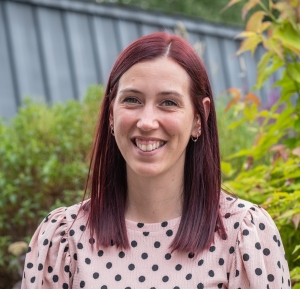Dr. Fran Pilkington-Cheney
Name: Dr. Fran Pilkington-Cheney
Job title: Research Associate
Panacea project partner: Transport Safety Research Centre, Loughborough University, UK
Panacea project work packages: WP1, A1.1
Q1. What is your personal area of expertise?
My area of expertise is fatigue and sleepiness, particularly in relation to safety critical tasks such as driving or during shift work. I am particularly interested in how people manage their sleepiness on a day-to-day basis. I have a BSc in Psychology and my PhD research explored how people counteract their sleepiness, with a specific focus on the use of sugar.
Q2. What are you currently working on for the Panacea project?
I was previously the activity lead for the monitoring and assessment needs for the different types of driving impairment. This task involved conducting a review of recent and relevant literature to assess how certain impairments (alcohol, licit and illicit drugs, fatigue/sleepiness, stress, and cognitive load) can be effectively monitored and assessed. From this, a description of key requirements and needs per impairment was developed, in relation to the findings of the literature review.
Q3. Tell us about one particularly striking thing that you learned from your latest research for the project.
I found that effectively monitoring driving impairments is complex! Although lots of effort and work is being targeted towards the effective measurement of different impairments, there is still much to be done. The combination of sensors for the different impairments adds another level of complexity, particularly when thinking about thresholds for fitness to drive and appropriate countermeasures.
An interesting paper that I reviewed, Watling et al., (2021), focused on systematically reviewing the sensitivity and specificity of driver sleepiness detection methods. The paper showed that while having multiple signals provides a more robust system with higher outcomes, there is considerable variation in sensitivity and specificity outcomes across studies. Consideration of individual differences, user friendliness, real time implementation and intrusiveness are also important.
Q4. Explain how you think this will help the Panacea project achieve its aims of improving fitness to drive among professional transport workers.
I think building on previous literature and research is vital to ensure that progress is made and to help develop a system that effectively monitors and assesses fitness to drive. For example, making sure that the learnings from Watling et al., (2021) are considered during the development of the Panacea system (which can also be applied to several impairments) such as the recommendation of non-intrusive measures, using multiple sensors to provide a more accurate system, personalising of training algorithms to take into account individual differences, as well as establishing procedures for thresholds, interdependencies and prioritisation of the multiple sensors.
Q5. Why is working on a road safety project important to you?
I enjoy working in this area as I am passionate about fatigue and sleepiness research. I fell in love with sleep research during my undergraduate degree and have been fortunate enough to continue working in this area for over 10 years. As well as working in academia, I have previously worked in industry which allowed me to apply my knowledge and research within an applied shift working context. This inspired me to complete my PhD in which I explored how fatigue and sleepiness are managed, using an applied use case of London city bus drivers. I think being able to translate academic research into practice and get the information to those who need it is very important. This is particularly important when it comes to fatigue and sleepiness, which is prevalent within shift working groups such as professional drivers – our target audience for PANACEA!



